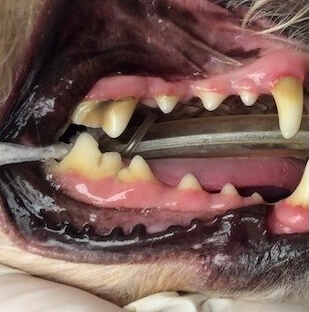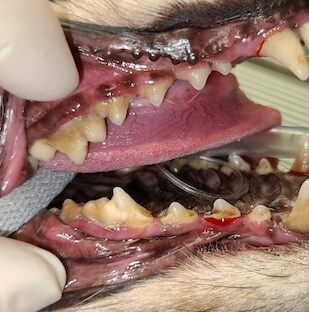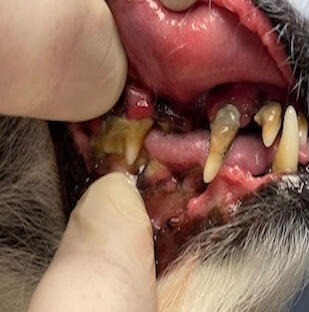Anesthesia makes me nervous. Is this safe for my pet?
The anesthesia used during COHAT procedures is hands down the safest of any we perform. Pets can be kept at an extremely light plane of anesthesia during COHATs as we rely mostly on local anesthetics for pain control (just like your dentist). This allows for safe procedures and rapid recoveries. In addition, our technicians monitor pets at all times using a combination of digital monitoring equipment and physical parameters for maximum safety.

 Caring for your pet’s teeth is an easy way to prevent a host of health problems caused by dental disease. At Valley Center Veterinary Clinic, we offer preventative care and treatment of dental disease to give your pet a pain and infection free mouth.
Caring for your pet’s teeth is an easy way to prevent a host of health problems caused by dental disease. At Valley Center Veterinary Clinic, we offer preventative care and treatment of dental disease to give your pet a pain and infection free mouth.

